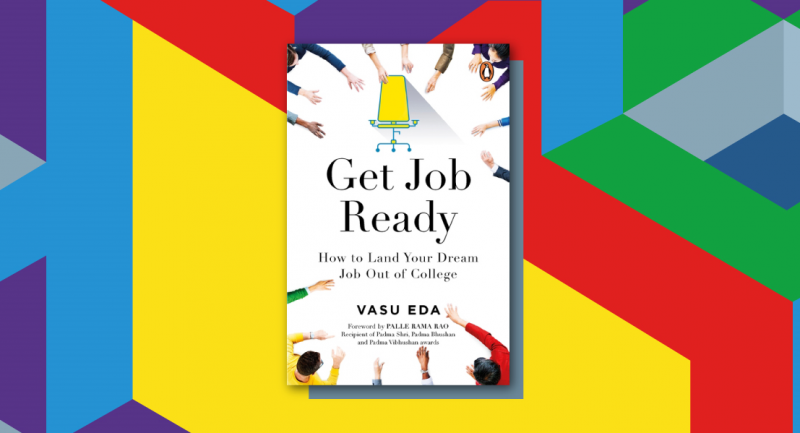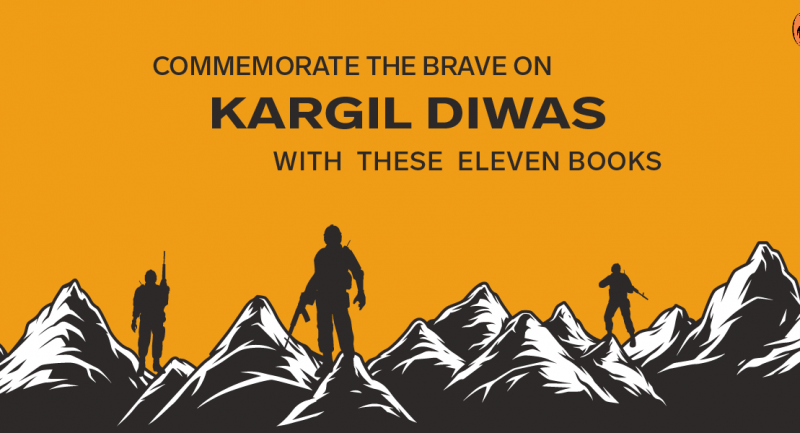
February is here, and so is your ticket to a journey filled with love, life, and a bit of everything in between! From not-your-topical romance tropes to tackling parenting in the digital age, or even unraveling the mystery of sports governance (yes, It’s a thing!), these newly released books are here to be your delightful companions, sprinkling a bit of magic to this month of love.
Get ready to feel the love on every page!

When the pandemic strikes and the lockdown happens, the usually, always travelling Rohit is forced travel within himself and explore his relationships thus far: with his mother, his teacher, his lovers—relationships that affect his current thought process, his relationships now. With the first stirrings of sexual attraction for his teacher and her lover came the shame of desire. His relationship with his lost girlfriend, with Dushyant, brings in guilt and remorse. What could he have done differently? What kind of a shameless person was he, using people to fulfil himself?
Fluctuating between poetry and prose, questioning even the method of writing Under the Night Jasmine is a world that is layered and many-splendored. It’s a coming-of-age novel — A micro look at a man’s world that both pushes back and fascinates.
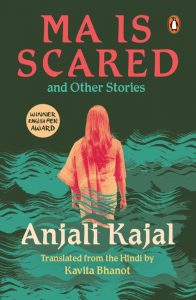
The stories in Anjali Kajal’s debut collection draw us into the lives of ordinary women in Northern India, making us realise quite how rarely we witness these experiences from Dalit points of view.
Whether combating the caste-based disdain of colleagues at work or in the classroom or enduring the new blows that the pandemic landed on Dalit communities, Anjali’s characters find a resilience and a dignity that we can all learn from.
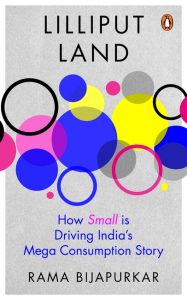
One of the largest consumer markets of the world, India is made up of lots and lots of small consumers—each earning and spending just a little bit that adds up to a lot. It is served by millions of small suppliers oozing innovation and customer intimacy, and is powered by digital infrastructure that does billions of unique and small transactions every day.
In her new book, Rama Bijapurkar dismisses the easy and simplistic view of the Indian demographic and embraces all the complexities and opportunities that new India has to offer.
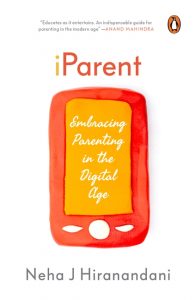
Neha J Hiranandani’s iParent comes to the rescue! This book decodes India’s app generation and elevates the discussion beyond ‘these kids and their phones!’ Based on research, candid conversations and personal reflection, this timely book is a witty meditation on parenting in a digital world. Hilarious and informative in equal measure, iParent empowers you to connect with the new generation and guide them to cyber-safety without being a helicopter parent. No judgement, no preaching.
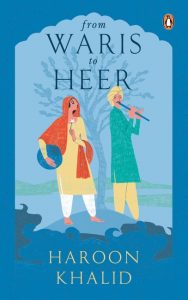
Heer. The perfect beauty. Ranjha. The perfect lover.
Heer-Ranjha. The perfect love legend.
Waris Shah. Its creator.
From Waris to Heer narrates the story of Heer, Ranjha and Waris, and reimagines the story of the creation of the immortal love legend.
Written in the style of a qissa, the novel, much of which is set in a tumultuous period in eighteenth-century Punjab, evokes both the spirit and the style of the original text even as it makes the story relatable to a modern audience. Lyrically narrated, it is among the most moving novels of our time about the power of love and commitment in a society that seeks to shackle its youth and censor its writers.
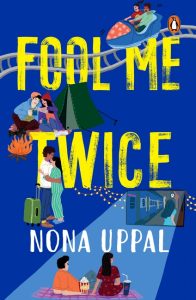
Set in New Delhi, Fool Me Twice is an unconventional story that will stump readers expecting a good, old romance trope. We meet and fall in love with a young couple planning their futures together when life rudely hijacks the steering wheel. Exploring the ways a twenty-year-old navigates grief and life after a loss that shatters most fifty-year-olds, Fool Me Twice looks at the complexity of falling in love ‘again’ at an age where most are falling for the first time, and what it feels like to move on from mourning one great love to make room for another.

Sport is a petri dish. In it, society tests not only human limits but also individual and collective attitudes and norms, often before they impact the wider world beyond the boundary.
In its quest for universal rules, organized sport must regularly balance multiple interests and answer difficult questions. This helps sport—and through sport, society—to tweak laws, markets, morals and technological advances. The outcomes of the resulting debates influence the way we live, view each other, and organize our world.
Why should we care about sport and its governance? Within the covers of Boundary Lab lie the answers.
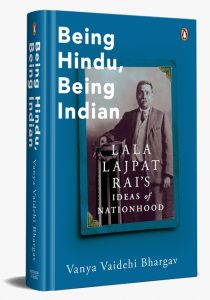
Meticulously researched and eloquently written, Being Hindu, Being Indian offers the first comprehensive examination of Lajpat Rai’s nationalist thought. By revealing the complexities of Rai’s thinking, it provokes us to think more deeply about broader questions relevant to present-day politics: Are all expressions of ‘Hindu nationalism’ the same as Hindutva? What are the similarities and differences between ‘Hindu’ and ‘Indian’ nationalism? Can communalism and secularism be expressed together? How should we understand fluidity in politics? This book invites readers to treat Lajpat Rai’s ideas as a gateway to think more deeply about history, politics, religious identity and nationhood.
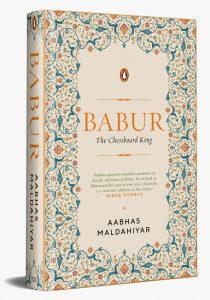
Gripping, anecdotal and deeply researched Babur: The Chessboard King delves into Hindustan’s economic landscape during Timurid rule and portrays Babur as a multifaceted ruler, challenging the typical depiction of an infallible conqueror and a good human being. Meticulously sourced from the Persian manuscript of the Baburnama and other primary sources, this book represents a milestone in Babur’s biographical genre, essential for comprehending the ambitions of this enigmatic king.
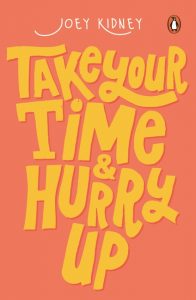
Have you ever felt lost or alone in your thoughts, feelings and experiences?
Take Your Time and Hurry Up continues Joey’s experiences as he leaves his early twenties and heads toward adulthood. This book appeals to anyone who is navigating ‘adulting’ without a compass or a map, and who is searching for a sense of belonging.
Joey gently encourages his audience to find comfort, mindfulness, guidance and connection. A clear theme is woven through each passage: a reminder to slow down. After all, what’s the rush.
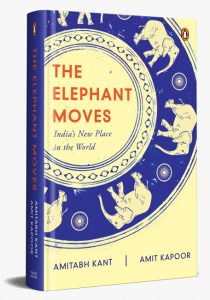
The Elephant Moves unfolds a captivating saga, tracing India’s economic journey through the lens of competitiveness. From unraveling economic history (‘origins unveiled”) to navigating global dynamics (“sailing the tides”), the book explores the forces shaping nations. It delves into the facets of many Indias, unveiling opportunities in heterogeneity.

The Great Flap of 1942 is a narrative history of a neglected and scarcely known period—between December 1941 and mid-1942—when all of India was caught in a state of panic. This was largely a result of the British administration’s mistaken belief that Japan was on the verge of launching a full-fledged invasion. It was a time when the Raj became unduly alarmed, when the tongue of rumour wagged wildly about Japanese prowess and British weakness and when there was a huge and largely unmapped exodus (of Indians and Europeans) from both sides of the coastline to ‘safer’ inland regions. This book demonstrates, quite astonishingly, that the Raj cynically encouraged the exodus and contributed to the repeated cycles of rumour, panic and flight. It also reveals how the shadow of the Japanese threat influenced the course of nationalist politics, altered British attitudes towards India and charted the course towards Independence.
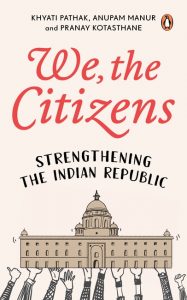
What is a republic? How do markets work? What is the role of society in bringing about change? These may be abstract questions, but they have a concrete impact on all of us.
We, the citizens, live at the intersection of the Indian state, market and society. Yet, many of us are unaware of what these entities stand for, how they interact with each other, and how they touch our lives.
We, The Citizens, by Khyati Pathak, Anupam Manur and Pranay Kotasthane, decodes public policy in the Indian context in a graphical narrative format relatable to readers of all ages. If you want to be an engaged citizen, aspire to be a positive change-maker, or wish to understand our sociopolitical environment, this book is for you.
The idea of India was an audacious dream. The fulfilment of this dream lies upon We, the citizens.
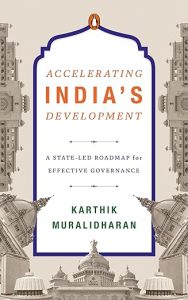
Seventy-five years after Independence, India has much to be proud of. We are both the world’s biggest democracy and fastest-growing large economy. Yet, we face profound challenges that hinder both individual well-being and aggregate growth, including education and skills, health and nutrition, public safety, justice, social protection, and jobs.
Accelerating India’s Development is addressed to all Indians—leaders, officials, entrepreneurs, teachers, students, citizens, and civil society—and provides an urgent call to action. It argues that building an effective state is the great unfinished task of Indian democracy, because quality public services are key to translating the political equality of ‘One Person, One Vote’ into greater equality of opportunity for all Indians.
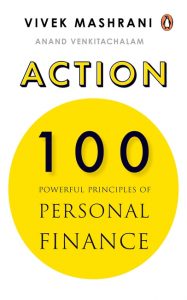
Personal finance is a subject that touches every aspect of our lives, yet it is one that many of us struggle to understand and manage effectively. It is a complex and ever-evolving field that requires constant attention and adaptation. The principles of personal finance are not just about managing money but about creating a better future for yourself and your loved ones. Exploring 100 personal finance principles that will help you make the most of your money, this book brings to light the key principles of personal finance using, what the authors call, the ACTION framework: Assess, Create a plan, Track progress, Invest, Optimize and Navigate.
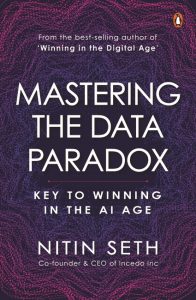
There are two remarkable phenomena that are unfolding almost simultaneously. The first is the emergence of a data-first world, where data has become a central driving force, shaping industries and fueling innovation. The second is the dawn of the AI age, propelled by the advent of Generative AI, that has created the possibility to leverage the data of the world for the first time. The convergence of these two, with data as the common denominator, holds immense promise and the opportunities are boundless.
This book provides us with opportunities to push our thinking, to innovate, to transform and to create a better future at all levels—individual, enterprise and the world.







